|
Books Should Be Free Loyal Books Free Public Domain Audiobooks & eBook Downloads |
|
|
Books Should Be Free Loyal Books Free Public Domain Audiobooks & eBook Downloads |
|
Books on Politics |
|---|
|
Book type:
Sort by:
View by:
|
By: John Locke (1632-1704) | |
|---|---|
 Second Treatise of Government
Second Treatise of Government
| |
By: John Maynard Keynes (1883-1946) | |
|---|---|
 Economic Consequences of the Peace
Economic Consequences of the Peace
The Economic Consequences of the Peace (1919) was a best seller throughout the world, published by John Maynard Keynes. Keynes attended the Versailles Conference as a delegate of the British Treasury and argued for a much more generous peace with Germany. The book was critical in establishing a general worldwide opinion that the Versailles Treaty was a brutal and unfair peace towards Germany. It helped to consolidate American public opinion against the treaty and involvement in the League of Nations... | |
By: John Milton (1608-1674) | |
|---|---|
 Areopagitica
Areopagitica
A prose tract or polemic by John Milton, published November 23, 1644, at the height of the English Civil War… Milton, though a supporter of the Parliament, argued forcefully against the Licensing Order of 1643, noting that such censorship had never been a part of classical Greek and Roman society. The tract is full of biblical and classical references which Milton uses to strengthen his argument. The issue was personal for Milton as he had suffered censorship himself in his efforts to publish... | |
By: John Morley (1838-1923) | |
|---|---|
 The Life of William Ewart Gladstone, Vol. 1 (of 3) 1809-1859
The Life of William Ewart Gladstone, Vol. 1 (of 3) 1809-1859
| |
By: John Quincy Adams (1767-1848) | |
|---|---|
 State of the Union Addresses of John Quincy Adams
State of the Union Addresses of John Quincy Adams
| |
By: John R. Lynch (1847-1939) | |
|---|---|
 The Facts of Reconstruction
The Facts of Reconstruction
After the American Civil War, John R. Lynch, who had been a slave in Mississippi, began his political career in 1869 by first becoming Justice of the Peace, and then Mississippi State Representative. He was only 26 when he was elected to the US Congress in 1873. There, he continued to be an activist, introducing many bills and arguing on their behalf. Perhaps his greatest effort was in the long debate supporting the Civil Rights Act of 1875 to ban discrimination in public accommodations.In 1884 Lynch was the first African American nominated after a moving speech by Theodore Roosevelt to the position of Temporary Chairman of the Republican National Convention in Chicago, Illinois... | |
By: John Richard Meader | |
|---|---|
 Your Pay Envelope
Your Pay Envelope
A Critique of Classical Socialism presented in a series of letters to a Mr. Smith. The author was the editor of the New York-based "Common Cause" magazine - Summary by KevinS | |
By: John Sherman (1823-1900) | |
|---|---|
 Recollections of Forty Years in the House, Senate and Cabinet An Autobiography.
Recollections of Forty Years in the House, Senate and Cabinet An Autobiography.
| |
By: John Spargo (1876-1966) | |
|---|---|
 Socialism A Summary and Interpretation of Socialist Principles
Socialism A Summary and Interpretation of Socialist Principles
| |
 The Common Sense of Socialism A Series of Letters Addressed to Jonathan Edwards, of Pittsburg
The Common Sense of Socialism A Series of Letters Addressed to Jonathan Edwards, of Pittsburg
| |
By: John Stuart Mill (1806-1873) | |
|---|---|
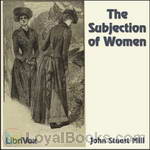 The Subjection of Women
The Subjection of Women
The Subjection of Women is the title of an essay written by John Stuart Mill in 1869, possibly jointly with his wife Harriet Taylor Mill, stating an argument in favor of equality between the sexes. It offers both detailed argumentation and passionate eloquence in opposition to the social and legal inequalities commonly imposed upon women by a patriarchal culture. Just as in “On Liberty,” Mill defends the emancipation of women on utilitarian grounds, convinced that the moral and intellectual advancement of women would result in greater happiness for everybody. | |
 Considerations on Representative Government
Considerations on Representative Government
Mill's volume was published in 1861 as an argument favoring this form of governance. Mill covers what forms of government work best, including when representative government is applicable and when not. He details appropriate functions of representative bodies and warns of problems to avoid. He distinguishes between true and false democracy. Other areas covered include how voting is carried out, the role of a second chamber in Parliament, and how an executive branch might function. | |
 The Contest in America
The Contest in America
| |
By: John Thomas Codman | |
|---|---|
 Brook Farm Historic and Personal Memoirs
Brook Farm Historic and Personal Memoirs
| |
By: John Tyler (1790-1862) | |
|---|---|
 State of the Union Address
State of the Union Address
| |
By: José Rizal (1861-1896) | |
|---|---|
 Noli Me Tangere (The Social Cancer)
Noli Me Tangere (The Social Cancer)
Noli Me Tangere (Latin for Touch Me Not) is a novel by the National Hero of the Philippines, Dr. José Rizal. It was originally written in Spanish, and first published in Germany in 1887. Noli Me Tangere exposed the corruption and abuse of the Spanish government and clergy towards the Philippine people and the ills of the Philippine society. This novel, and its sequel El Filibusterismo were banned in many parts of the Islands. Rizal was later arrested for inciting rebellion, based largely on his writings, and was excuted in Manila... | |
By: Joseph C. (Joseph Columbus) Manning (1870-) | |
|---|---|
 Politics of Alabama
Politics of Alabama
| |
By: Joseph Clayton (1868-) | |
|---|---|
 The Rise of the Democracy
The Rise of the Democracy
| |
By: Joseph Hall (1574-1656) | |
|---|---|
 Ideal Commonwealths
Ideal Commonwealths
| |
By: Joseph J. Mereto | |
|---|---|
 The Red Conspiracy
The Red Conspiracy
| |
By: Justin McCarthy (1830-1912) | |
|---|---|
 History of the Four Georges and of William IV, Volume 3
History of the Four Georges and of William IV, Volume 3
In Volume III of this series on the Hanoverian Kings, Justin McCarthy is joined by his son, Justin Hartly McCarthy, a liberal Irish MP like his father. Together they bring to life, poor stubborn George III, the outrageous radical, John Wilkes, the rebellious American Colonies, great-hearted Charles James Fox, the Gordon Riots which set London ablaze, Edmund Burke, Britain's problematic Indian policy, and the brave, enigmatic Younger Pitt, who faced national fears of the spread of revolution across the Channel from France and then confronted the imminent threat of invasion by the armies of Napoleon. | |
 A History of the Four Georges
A History of the Four Georges
| |
By: Karl Marx (1818-1883) | |
|---|---|
 Selected Essays
Selected Essays
| |
 Eighteenth Brumaire of Louis Bonaparte
Eighteenth Brumaire of Louis Bonaparte
| |
By: Karl Nordlund (1871-) | |
|---|---|
 The Swedish-Norwegian Union Crisis A History with Documents
The Swedish-Norwegian Union Crisis A History with Documents
| |
By: Katherine Thurston (1875-1911) | |
|---|---|
 The Masquerader
The Masquerader
The Masquerader is one of two Katherine Cecil Thurston’s books that appeared on the Publisher’s Weekly best-sellers list in 1905. The Masquerader is part mystery, part romance and part political thriller – all tied up in one neat package. Nature has a way of sometimes making two people nearly indistinguishable in appearance. Such is the premise for this book. John Chilcote, a British politician, and John Loder, a man down on his luck meet by accident one night during one of London’s worst fogs... | |
By: King of the Hawaiian Islands Kamehameha IV (1834-1863) | |
|---|---|
 Speeches of His Majesty Kamehameha IV. To the Hawaiian Legislature
Speeches of His Majesty Kamehameha IV. To the Hawaiian Legislature
| |
By: L. (Lassa) Oppenheim (1858-1919) | |
|---|---|
 The League of Nations and its Problems Three Lectures
The League of Nations and its Problems Three Lectures
| |
By: L. T. (Leonard Trelawny) Hobhouse (1864-1929) | |
|---|---|
 Liberalism
Liberalism
| |
By: Leo Tolstoy (1828-1910) | |
|---|---|
 The Kingdom of God is within you
The Kingdom of God is within you
The title of the book comes from Luke 17:21. It is a non-fiction work of the famous Russian author Leo Tolstoy. He wrote it after many years of reflexion on Christianity and Jesus. Many subjects are present such as wars, non-violence, misunderstanding by believers of the faith, etc. | |
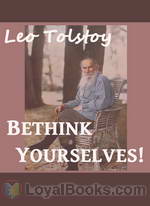 Bethink Yourselves!
Bethink Yourselves!
As Russia goes to war against Japan, Tolstoy urges those at all levels of society, from the Tsar down to the common soldier, to consider their actions in the light of Christ's teaching. "However strange this may appear, the most effective and certain deliverance of men from all the calamities which they inflict upon themselves and from the most dreadful of all—war—is attainable, not by any external general measures, but merely by that simple appeal to the consciousness of each separate man which, nineteen hundred years ago, was proposed by Jesus—that every man bethink himself, and ask himself, who is he, why he lives, and what he should and should not do... | |
 What Shall We Do?
What Shall We Do?
A vivid description of wealth and poverty in Russia in Tolstoy's day, an inquiry into the root causes of economic inequality, and a vision of a more just way of living.Tolstoy recounts his own disturbing encounters with extreme poverty in Moscow, his initial idea of making the problem disappear by generous financial contributions, and his subsequent realization that the problem of poverty was much more intractable than he had imagined. He concludes that poverty is fundamentally linked with the luxurious lifestyle to which he and his class were accustomed, and that both are detrimental both to the rich and to the poor... | |
By: Louise DeKoven Bowen (1859-1953) | |
|---|---|
 Colored People of Chicago
Colored People of Chicago
This book presents a summary of the findings conducted by the the Juvenile Protective Association in Chicago before the changes brought on by the war-time economy. The study's researchers were A. P. Drucker, Sophia Boaz, A. L. Harris, and Miriam Schaffner. Its author, Louise DeKoven Bowen was a well-known philanthropist and suffragist in Chicago. The summary makes no strong argument on its own, but presents simple facts and observations that would alert the reader to the need for social and economic reform in the city. - Summary by KevinS | |
By: Lyndon B. (Lyndon Baines) Johnson (1908-1973) | |
|---|---|
 State of the Union Address
State of the Union Address
| |
By: M. François Guizot (1787-1874) | |
|---|---|
 Memoirs To Illustrate The History Of My Time Volume 1
Memoirs To Illustrate The History Of My Time Volume 1
| |
By: Marcus Tullius Cicero | |
|---|---|
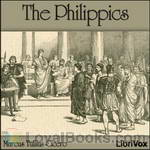 The Philippics
The Philippics
A philippic is a fiery, damning speech delivered to condemn a particular political actor. The term originates with Demosthenes, who delivered an attack on Philip II of Macedon in the 4th century BCE.Cicero consciously modeled his own attacks on Mark Antony, in 44 BC and 43 BC, on Demosthenes’s speeches, and if the correspondence between M. Brutus and Cicero are genuine [ad Brut. ii 3.4, ii 4.2], at least the fifth and seventh speeches were referred to as the Philippics in Cicero’s time. They were also called the Antonian Orations by Aulus Gellius... | |
By: Margaret Fuller (1810-1850) | |
|---|---|
 Woman in the Nineteenth Century and Kindred Papers Relating to the Sphere, Condition, and Duties of Women
Woman in the Nineteenth Century and Kindred Papers Relating to the Sphere, Condition, and Duties of Women
Margaret Fuller (1810-1850) was an American feminist, writer, and intellectual associated with the Transcendentalist movement. Her book Woman in the Nineteenth Century (1845) is considered the first major feminist work in the United States. Her life was short but full. She became the first editor of the transcendentalist journal The Dial in 1840, before joining the staff of the New York Tribune under Horace Greeley in 1844. By the time she was in her 30s, Fuller had earned a reputation as the best-read person in New England, male or female, and became the first woman allowed to use the library at Harvard College... | |
By: Margaret Sanger (1879-1966) | |
|---|---|
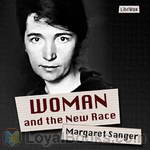 Woman and the New Race
Woman and the New Race
Margaret Sanger was an American sex educator and nurse who became one of the leading birth control activists of her time, having at one point, even served jail time for importing birth control pills, then illegal, into the United States. Woman and the New Race is her treatise on how the control of population size would not only free women from the bondage of forced motherhood, but would elevate all of society. The original fight for birth control was closely tied to the labor movement as well as the Eugenics movement, and her book provides fascinating insight to a mostly-forgotten turbulent battle recently fought in American history. | |
By: Mark Twain (1835-1910) | |
|---|---|
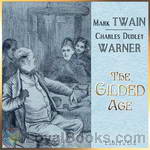 The Gilded Age, A Tale of Today
The Gilded Age, A Tale of Today
The Gilded Age: A Tale of Today is an 1873 novel by Mark Twain and Charles Dudley Warner that satirizes greed and political corruption in post-Civil War America. The term gilded age, commonly given to the era, comes from the title of this book. Twain and Warner got the name from Shakespeare's King John (1595): "To gild refined gold, to paint the lily... is wasteful and ridiculous excess." Gilding a lily, which is already beautiful and not in need of further adornment, is excessive and wasteful, characteristics of the age Twain and Warner wrote about in their novel... | |
 Goldsmith's Friend Abroad Again
Goldsmith's Friend Abroad Again
This satire on the U.S.A.'s myth of being the "Home of the Oppressed, where all men are free and equal", is unrelenting in its pursuit of justice through exposure. It draws a scathingly shameful portrait of how Chinese immigrants were treated in 19th century San Francisco. (Introduction by John Greenman) | |
By: Martin Van Buren (1782-1862) | |
|---|---|
 State of the Union Address
State of the Union Address
| |
By: Mary Wollstonecraft (1759-1797) | |
|---|---|
 Vindication Of The Rights Of Men, In A Letter To The Right Honourable Edmund Burke; Occasioned By His Reflections On The Revolution In France
Vindication Of The Rights Of Men, In A Letter To The Right Honourable Edmund Burke; Occasioned By His Reflections On The Revolution In France
Wollstonecraft's A Vindication of the Rights of Men attacks aristocracy and advocates republicanism. It was published in response to Edmund Burke's Reflections on the Revolution in France , which was a defence of constitutional monarchy, aristocracy, and the Church of England, and an attack on Wollstonecraft's friend, the Rev Richard Price. Hers was the first response in a pamphlet war that subsequently became known as the Revolution Controversy, in which Thomas Paine's Rights of Man became the rallying cry for reformers and radicals... | |
By: Millard Fillmore (1800-1874) | |
|---|---|
 State of the Union Address
State of the Union Address
| |
By: Mohandas Karamchand Gandhi | |
|---|---|
 Third Class in Indian Railways
Third Class in Indian Railways
Mohandas Karamchand Gandhi (1869 – 1948) was the pre-eminent political and spiritual leader of India during the Indian independence movement. He was the pioneer of satyagraha — resistance to tyranny through mass civil disobedience. This philosophy was firmly founded upon ahimsa, or total nonviolence, and led India to independence and inspired movements for civil rights and freedom across the world. Gandhi is commonly known around the world as Mahatma Gandhi and in India also as Bapu. He is officially honoured in India as the Father of the Nation; his birthday, 2 October, is commemorated there as Gandhi Jayanti, a national holiday. | |
By: Mrs. Eugenia Dunlap Potts (1840-1912) | |
|---|---|
 Historic Papers on the Causes of the Civil War
Historic Papers on the Causes of the Civil War
While claiming to be historical papers on the causes of the United States Civil War, the author indulges in some Slavery Apologetics. An interesting view from a southern lady on what caused the war and why the south was the underdog. | |
By: Mrs. Philip Snowden (1881-1951) | |
|---|---|
 Political Pilgrim in Europe
Political Pilgrim in Europe
Written in the aftermath of Word War I, Viscountess Snowden recounts her travels in post war Europe in, as she describes it, "an attempt to do what one person might do, or at least attempt, to restore good feeling between the nations and the normal course of life as quickly as possible." An outspoken pacifist, socialist, and feminist who nonetheless strongly denounced the Bolsheviks, Snowden was a controversial and polarizing figure. whose views and observations offer a unique perspective on Europe in the '20s. - Summary by Ciufi Galeazzi | |
By: Nathaniel W. Stephenson (1867-1935) | |
|---|---|
 Abraham Lincoln and the Union; a chronicle of the embattled North
Abraham Lincoln and the Union; a chronicle of the embattled North
| |
By: Newell Dwight Hillis (1858-1929) | |
|---|---|
 The Battle of Principles A Study of the Heroism and Eloquence of the Anti-Slavery Conflict
The Battle of Principles A Study of the Heroism and Eloquence of the Anti-Slavery Conflict
| |
By: Niccolò Machiavelli (1469-1527) | |
|---|---|
 History of Florence and of the Affairs of Italy
History of Florence and of the Affairs of Italy
History of Florence and of the Affairs of Italy is an historical account by Niccolò Machiavelli. Toward the end of 1520, the Cardinal Giulio of Medici, later Pope Clement VII, offered Machiavelli the appointment to write a history of Florence. Although Machiavelli was reluctant to accept, accepting was his only way to regain the good graces of the Medici who had regained power and were in a position to offer him employment and protection. Doing the history also provided a way for Machiavelli’s views to become the “official” history of Florentine and Italian affairs. Once completed, the work was presented officially to Giulio, now Pope, in May of 1526. | |
 Machiavelli, Volume I
Machiavelli, Volume I
| |
By: Orestes Augustus Brownson (1803-1876) | |
|---|---|
 The American Republic : constitution, tendencies and destiny
The American Republic : constitution, tendencies and destiny
| |
By: Oscar Wilde (1854-1900) | |
|---|---|
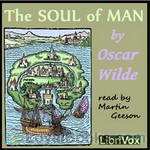 The Soul of Man
The Soul of Man
“(T)he past is what man should not have been. The present is what man ought not to be. The future is what artists are.”Published originally as “The Soul of Man Under Socialism,” this is not so much a work of sober political analysis; rather it can be summed up as a rhapsodic manifesto on behalf of the Individual. Socialism having deployed technology to liberate the whole of humanity from soul-destroying labour, the State obligingly withers away to allow the free development of a joyful, anarchic hedonism... | |
By: Ottokar Theobald Otto Maria Czernin von und zu Chudenitz (1872-1932) | |
|---|---|
 In the World War
In the World War
| |
By: Owen Wister (1860-1938) | |
|---|---|
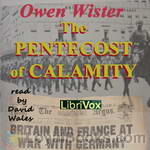 The Pentecost of Calamity
The Pentecost of Calamity
Nonfiction. Appalled by the savagery of World War I, Owen Wister in 1915 published an attempt to move the United States out of neutrality into joining the Allies against Germany. His aim was the quicker defeat of that nation. (Wister: “the new Trinity of German worship – the Super-man, the Super-race, and the Super-state.”) He was but one of many literary personages who joined in this effort. A moving quote: “Perhaps nothing save calamity will teach us what Europe is thankful to have learned again – that some things are worse than war, and that you can pay too high a price for peace; but that you cannot pay too high for the finding and keeping of your own soul.” | |
By: Percy Fitzpatrick (1862-1931) | |
|---|---|
 The Transvaal from Within A Private Record of Public Affairs
The Transvaal from Within A Private Record of Public Affairs
| |
By: Peter A. (Peter Alexander) Speek (1873-) | |
|---|---|
 A Stake in the Land
A Stake in the Land
| |
By: Peter Kropotkin (1842-1921) | |
|---|---|
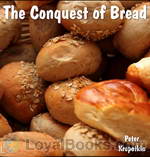 The Conquest of bread
The Conquest of bread
In this work, Kropotkin points out what he considers to be the fallacies of the economic systems of feudalism and capitalism, and how he believes they create poverty and scarcity while promoting privilege. He goes on to propose a more decentralised economic system based on mutual aid and voluntary cooperation, asserting that the tendencies for this kind of organisation already exist, both in evolution and in human society. | |
By: Plato (424-348 BC) | |
|---|---|
 Laws
Laws
Νόμοι (Laws) is Plato's final dialogue written after his attempt to advise the tyrant Dionysius II of Syracuse. The dialogue takes place between: an Athenian Stranger (Socrates? A god in human form?); the quiet Lacedaemonian Megillus; and the Cretan Cleinias. The Stranger asks whether humans live to be more effective at waging war or if there is something more important a legislator should seek to achieve. During their pilgrimage Cleinias discloses his role in the establishment of a new colony... | |
By: Queen of Great Britain Victoria (1819-1901) | |
|---|---|
 The Letters of Queen Victoria : A Selection from Her Majesty's Correspondence between the Years 1837 and 1861 Volume 1, 1837-1843
The Letters of Queen Victoria : A Selection from Her Majesty's Correspondence between the Years 1837 and 1861 Volume 1, 1837-1843
| |
By: Rabindranath Tagore | |
|---|---|
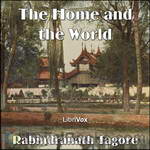 The Home and the World
The Home and the World
Rabindranath Tagore (1861–1941), also known by the sobriquet Gurudev, was a Bengali poet, Brahmo religionist, visual artist, playwright, novelist, and composer whose works reshaped Bengali literature and music in the late 19th and early 20th centuries. He became Asia’s first Nobel laureate when he won the 1913 Nobel Prize in Literature. The Home and the World is a 1916 novel, set in the estate of the rich Bengali noble Nikhil. He lives happily with his beautiful wife Bimala until the appearance of his friend and radical revolutionist, Sandip... | |
By: Rafael Palma (1874-1939) | |
|---|---|
 The Woman and the Right to Vote
The Woman and the Right to Vote
| |
By: Ralph Centennius | |
|---|---|
 The Dominion in 1983
The Dominion in 1983
| |
By: Ramsay Muir (1872-1941) | |
|---|---|
 The Expansion of Europe The Culmination of Modern History
The Expansion of Europe The Culmination of Modern History
| |
By: Richard M. (Richard Milhous) Nixon (1913-1994) | |
|---|---|
 State of the Union Address
State of the Union Address
| |
By: Richard Plantagenet Temple Nugent Brydges Chandos Grenville Buckingham and Chandos (1797-1861) | |
|---|---|
 Memoirs of the Courts and Cabinets of George the Third From the Original Family Documents, Volume 1
Memoirs of the Courts and Cabinets of George the Third From the Original Family Documents, Volume 1
| |
 Memoirs of the Court and Cabinets of George the Third From the Original Family Documents, Volume 2
Memoirs of the Court and Cabinets of George the Third From the Original Family Documents, Volume 2
| |
By: Richard W. Church (1815-1890) | |
|---|---|
 Bacon
Bacon
This investigation of Bacon the scholar and man of letters begins with a look at the early days ang progresses to his relationships with Queen Elizabeth and James I. It includes accounts of his positions as solicitor general, attorney-general, and chancellor. The book concludes with Bacon's failure, his overall philosophy, and summaries of his writings. | |
By: Robert Granville Campbell | |
|---|---|
 Neutral Rights and Obligations in the Anglo-Boer War
Neutral Rights and Obligations in the Anglo-Boer War
| |
By: Robert John Buckley | |
|---|---|
 Ireland as It Is And as It Would be Under Home Rule
Ireland as It Is And as It Would be Under Home Rule
| |
By: Robert Joseph Kerner (1887-1956) | |
|---|---|
 The Russian Revolution; the Jugo-Slav Movement
The Russian Revolution; the Jugo-Slav Movement
| |
By: Robert Rives La Monte | |
|---|---|
 Socialism: Positive and Negative
Socialism: Positive and Negative
| |
By: Ronald Reagan (1911-2004) | |
|---|---|
 State of the Union Address
State of the Union Address
| |
By: Rutherford Birchard Hayes (1822-1893) | |
|---|---|
 State of the Union Address
State of the Union Address
| |
By: Samuel Merwin and Henry Kitchell Webster (1874-1936 and 1875-1932) | |
|---|---|
 The Short Line War
The Short Line War
"The Short Line War is a story that will appeal more particularly to the sterner sex, and we take it that the hyphenated name, Merwin-Webster, stands for two healthy-minded young men who have put their heads together and who have mapped out this story of a railroad war, in which politics form a considerable part. Jim Weeks is the central figure in the fight, and we like him so much better for knowing of the romance in his early life. He was a man 'without much instinct or imagination; he took everything seriously and literally, he could not understand a whim'--therefore a very foolish little woman came into his life only to leave it desolate... | |
By: Samuel Peter Orth (1873-1922) | |
|---|---|
 The Boss and the Machine; a chronicle of the politicians and party organization
The Boss and the Machine; a chronicle of the politicians and party organization
| |
By: Sarah Orne Jewett (1849-1909) | |
|---|---|
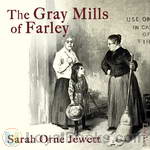 The Gray Mills of Farley
The Gray Mills of Farley
As contemporary today as it was over a century ago, this relatively unsentimental tale of labor relations still packs a punch. | |
By: Scott Nearing (1883-1983) | |
|---|---|
 The Debs Decision
The Debs Decision
| |
By: Shelby M. (Shelby Moore) Cullom (1829-1914) | |
|---|---|
 Fifty Years of Public Service Personal Recollections of Shelby M. Cullom, Senior United States Senator from Illinois
Fifty Years of Public Service Personal Recollections of Shelby M. Cullom, Senior United States Senator from Illinois
| |
By: Sigmund Freud | |
|---|---|
 Reflections on War and Death
Reflections on War and Death
Anyone, as Freud tells us in Reflections on War and Death, forced to react against his own impulses may be described as a hypocrite, whether he is conscious of it or not. One might even venture to assert—it is still Freud’s argument—that our contemporary civilisation favours this sort of hypocrisy and that there are more civilised hypocrites than truly cultured persons, and it is even a question whether a certain amount of hypocrisy is not indispensable to maintain civilisation. When this... | |
By: Sir Thomas More (1478-1535) | |
|---|---|
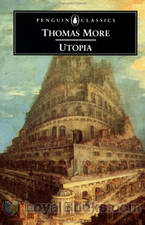 Utopia
Utopia
He was a trusted aide of Henry VIII, but when he supposedly opposed the monarch's second marriage, he was thrown into prison and executed for treason. More than two hundred years later, he was canonized as the patron saint of statesmen and politicians by the Catholic Church. Philosopher, writer, diplomat, lawyer, Renaissance man, avid gardener, humanist thinker and statesman are only some of the words used to describe him. A lifelong opponent of Protestantism who was rumored to have had heretics imprisoned, murdered and burned at the stake, Thomas More is even today an enigmatic figure... | |
By: Solon J. (Solon Justus) Buck (1884-1962) | |
|---|---|
 The Agrarian Crusade; a chronicle of the farmer in politics
The Agrarian Crusade; a chronicle of the farmer in politics
| |
By: Stephen Lucius Gwynn (1864-1950) | |
|---|---|
 The Life of the Rt. Hon. Sir Charles W. Dilke, Volume 1
The Life of the Rt. Hon. Sir Charles W. Dilke, Volume 1
| |
By: Susan Fenimore Cooper (1813-1894) | |
|---|---|
 Female Suffrage: a Letter to the Christian Women of America
Female Suffrage: a Letter to the Christian Women of America
| |
By: Susan Glaspell (1876-1948) | |
|---|---|
 Trifles
Trifles
On the surface, this short play is a slice-of-life story about a murder investigation in the rural United States. However, it is also a story about the relationships between men and women, husbands and wives, and the often-overlooked "trifles" which can say so much about a person's life. | |
By: Sutherland Menzies (fl. 1840-1883) | |
|---|---|
 Political Women, Vol. 1
Political Women, Vol. 1
| |
 Political Women, Vol. 2
Political Women, Vol. 2
| |
By: Sydney Howard Gay (1814-1888) | |
|---|---|
 James Madison
James Madison
| |
By: Sylvester Mowry (1830-1871) | |
|---|---|
 Memoir of the Proposed Territory of Arizona
Memoir of the Proposed Territory of Arizona
| |
By: T. R. (Thomas Ramsden) Ashworth (1864-1935) | |
|---|---|
 Proportional Representation Applied To Party Government
Proportional Representation Applied To Party Government
| |
By: Thames Williamson | |
|---|---|
 Problems in American Democracy
Problems in American Democracy
Problems in American Democracy is a very detailed, specific explanation of some of the underlying and surface problems of a democracy system of government, particularly of the American form of democracy. Though lengthy, it is a great read for people who want to learn more about different types of government and the foundations of our own government in the United States of America. | |
By: Theodore Clarke Smith (1870-1960) | |
|---|---|
 The Wars Between England and America
The Wars Between England and America
| |
By: Theodore Roosevelt | |
|---|---|
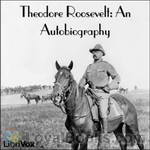 Theodore Roosevelt: An Autobiography
Theodore Roosevelt: An Autobiography
In his vital, illustrative and dynamic autobiography, Theodore Roosevelt let us into the life that formed one of the greatest and outspoken presidents in American history. Not only are we privy to the formation of his political ideals, but also to his love of the frontier and the great outdoors. | |
 State of the Union Address
State of the Union Address
| |
 Square Deal
Square Deal
Theodore Roosevelt became the 26th president of the United States when president William McKinley was assassinated in 1901. As the youngest president, Roosevelt advanced the progressive Republican program known as the “Square Deal” focused on conservation of natural resources, control of corporations, and consumer protection. Expanding on this theme, “The matter contained is this book has been carefully prepared from the many addresses by the President, the aim being to bring under each specific head the ideas expressed on many occasions, by Horace Markle.” Topics range from The Farmer to World Peace, and The Essence of Christian Character. - Summary by Larry Wilson | |
By: Thomas Erskine Holland (1835-1926) | |
|---|---|
 Letters to "The Times" upon War and Neutrality (1881-1920)
Letters to "The Times" upon War and Neutrality (1881-1920)
| |
By: Thomas Hart Benton (1782-1858) | |
|---|---|
 Thomas Hart Benton's Remarks to the Senate on the Expunging Resolution
Thomas Hart Benton's Remarks to the Senate on the Expunging Resolution
| |
By: Thomas Hobbes (1588-1679) | |
|---|---|
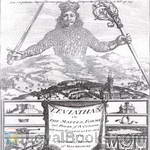 Leviathan, or The Matter, Forme and Power of a Common Wealth Ecclesiasticall and Civil
Leviathan, or The Matter, Forme and Power of a Common Wealth Ecclesiasticall and Civil
Books 1 and 2. Leviathan, or The Matter, Forme and Power of a Common Wealth Ecclesiasticall and Civil is a book written in 1651 by Thomas Hobbes. The book concerns the structure of society (as represented figuratively by the frontispiece, showing the state giant made up of individuals). In the book, Hobbes argues for a social contract and rule by a sovereign. Influenced by the English Civil War, Hobbes wrote that chaos or civil war – situations identified with a state of nature and the famous motto bellum omnium contra omnes (”the war of all against all”) – could only be averted by strong central government... | |
By: Thomas Jefferson (1743-1826) | |
|---|---|
 The Writings of Thomas Jefferson Library Edition - Vol. 6 (of 20)
The Writings of Thomas Jefferson Library Edition - Vol. 6 (of 20)
| |
 Memoir, Correspondence, And Miscellanies, From The Papers Of Thomas Jefferson, Volume 1
Memoir, Correspondence, And Miscellanies, From The Papers Of Thomas Jefferson, Volume 1
| |